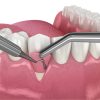Dental implants are artificial teeth used to replace lost or damaged teeth. If you are considering getting dental implants in Drexel Hill, PA, you may wonder how long it takes for dental implants to heal completely. The recovery time for dental implants can vary from person to person and can also be affected by several factors.
If you are unhappy with your smile, dentists have an array of techniques and tools to improve the appearance of anyone’s smile, including dental implants clovis, ca. Melbourne dentist offers a wide range of dental services.
What can you expect after surgery?
It is normal to experience some minor discomfort after dental implant surgery. Some examples of the kind of discomfort you may experience are:
- Bleeding
- Bruising on your gums or face
- Swelling of your gums or face
- Minor pain and discomfort
Most of the discomfort only lasts 2-3 after the surgery and can go up to 7-10 days too. However, if you still feel significant discomfort after that, you should check in with your dentist.
How long does it take to recover after getting dental implants?
The amount of time it takes to recover from dental implant surgery varies from person to person. While discomfort may be present for a few days following the surgery, many people can return to work the next day. Over-the-counter medicine can help you get rid of the discomfort easily. However, the complete healing time for dental implants is about four to six months. This allows complete healing to take place before the dentist places the crown.
How to take care of your dental implants when they are healing?
Some ways to make your recovery faster and easier are:
- Take a rest. Resting is the best way to allow your body to recover after surgery.
- Have a soft and nutritious diet. Avoid any hot or spicy foods until 48 hours after the surgery.
- Drink plenty of water. A hydrated body heals faster.
- Rinse your mouth with saltwater. Warm salt water can significantly reduce the number of bacteria in your mouth and not irritate the incision.
- Avoid smoking. Smoking is bad for oral health but can be even more detrimental after surgery.
- Maintain proper oral hygiene. Make sure that you follow your dentist’s advice and maintain oral hygiene.
Talk to a dentist today
If you have any questions regarding your oral health or how to treat lost or damaged teeth, you should seek a professional’s help. Schedule an appointment with a skilled dentist today and discuss which treatment options are available for you and what may be the right choice for your case. Remember, if you are getting dental implants, always visit a licensed, experienced dentist to minimize health risks and complications.






